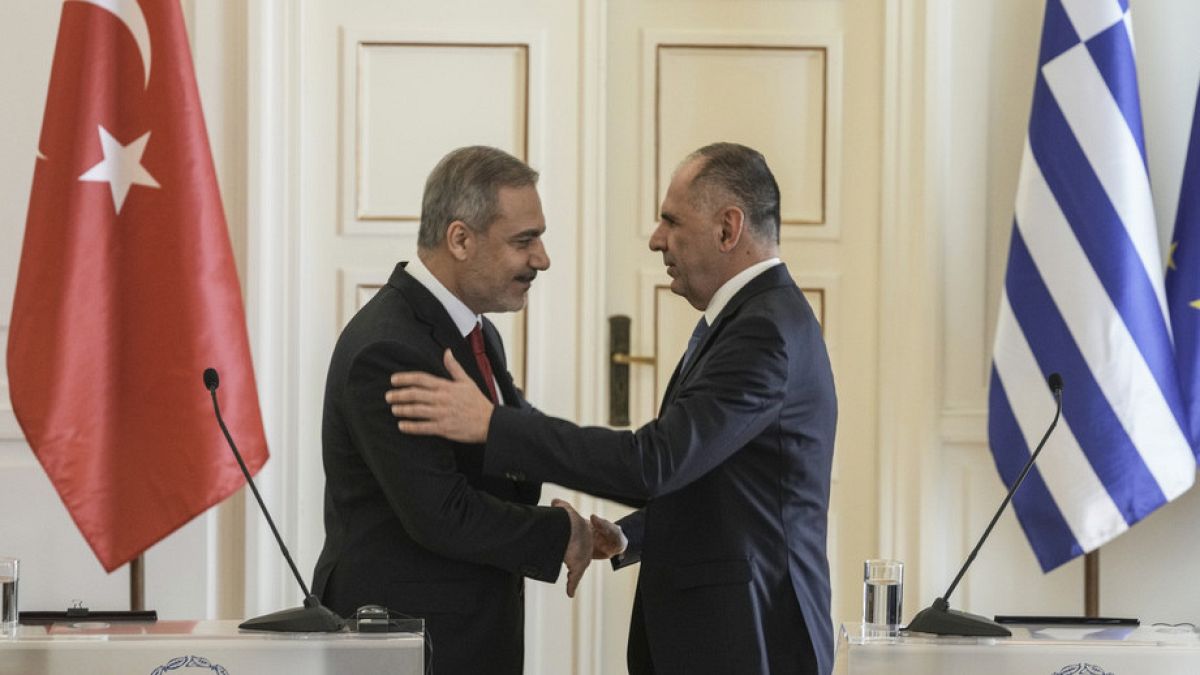In an effort to improve relations and boost trade, the Greek and Turkish foreign ministers recently met in Athens to address longstanding issues between the two nations. Despite historical tensions over maritime disputes, energy resources, and migration, both ministers expressed optimism about the progress being made in their cooperation. Turkey’s Foreign Minister, Hakan Fidan, acknowledged the disagreements between the two countries but emphasized the need to identify and address these issues realistically. Similarly, Greek Foreign Minister George Gerapetritis admitted that there were still differences in how to demarcate maritime boundaries but expressed a commitment to further discussions on the matter.
One of the key topics of discussion during the meeting was the future of Cyprus, a longstanding point of contention between Greek and Turkish Cypriot communities. While peace negotiations have been in a stalemate, with differing views on reunification and a two-state settlement, both ministers highlighted the need for a new approach to move forward. The meeting between the foreign ministers followed a series of talks between Greek Prime Minister Kyriakos Mitsotakis and Turkish President Recep Tayyip Erdoğan, signaling a broader initiative to improve ties and prevent potential crises.
As both Greece and Turkey are NATO members, their improved relations are seen as significant not only for the two countries but also for Turkey’s relationship with the European Union and Western allies. The signing of a dozen cooperation deals in December 2023 covering education, energy, technology, tourism, and trade highlights the potential for increased bilateral cooperation. With current bilateral trade standing at €5.8 billion, both countries have set a target of reaching €10 billion in the near future, demonstrating a shared commitment to enhancing economic ties and stability in the region.
Despite decades of disputes that have almost led to war on multiple occasions, the recent diplomatic efforts between Greece and Turkey have been praised as a step in the right direction. By addressing longstanding issues such as maritime boundaries and exploration rights in the Aegean and eastern Mediterranean seas, both countries are working towards creating a more peaceful and cooperative relationship. The upcoming high-level cooperation council between Greece and Turkey in early 2025 is seen as a further opportunity to strengthen ties and foster mutual understanding between the two nations.
In conclusion, the recent meeting between the Greek and Turkish foreign ministers in Athens marks a positive development in the efforts to improve relations and boost trade between the two historic foes. By acknowledging their disagreements and committing to further discussions on key issues such as maritime boundaries and the future of Cyprus, both countries are laying the foundation for a more cooperative relationship. As NATO members, Greece and Turkey have the potential to not only enhance their own bilateral ties but also contribute to regional stability and potentially mend strained relationships with other Western allies. Through ongoing diplomatic efforts and a shared commitment to dialogue, Greece and Turkey are working towards a future of peace and cooperation in the region.










